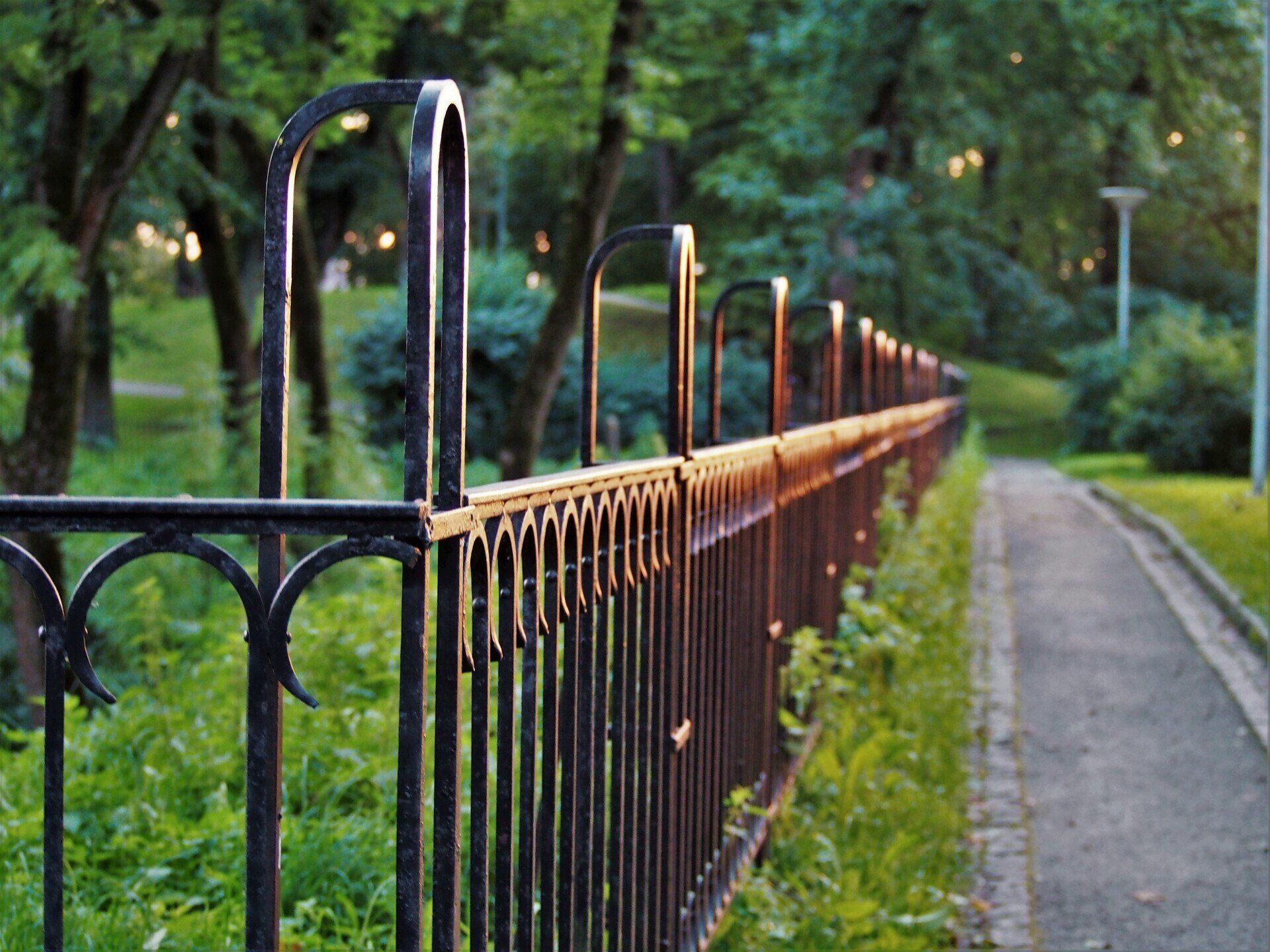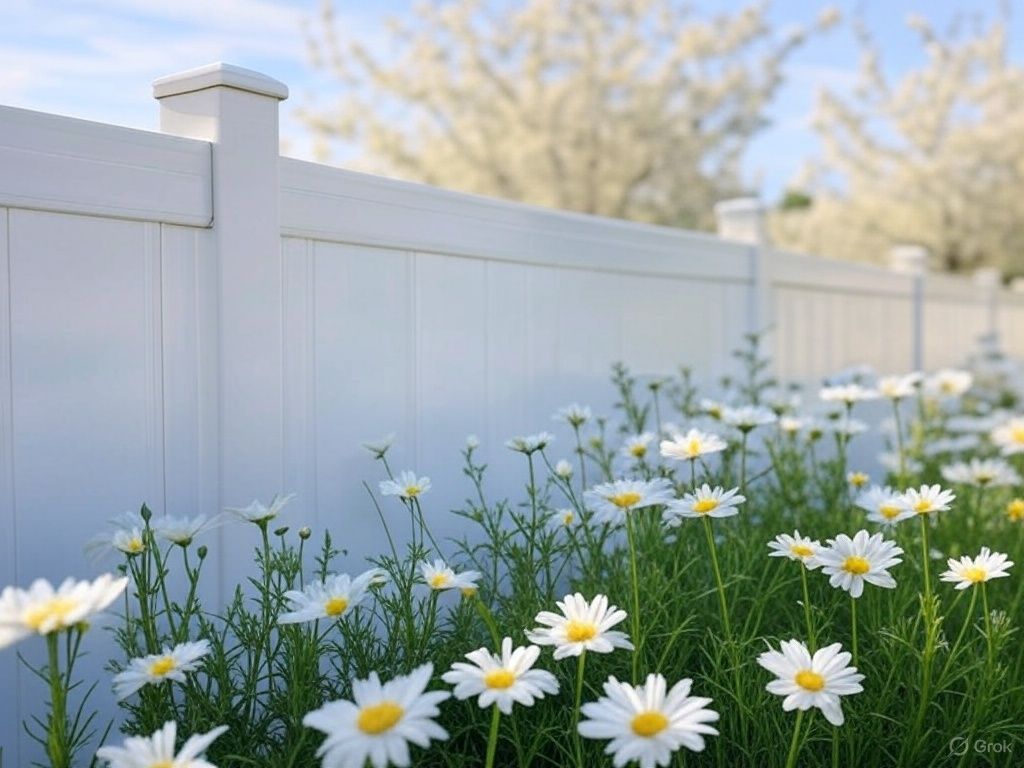Introduction
When it comes to enhancing your home's exterior, the fence you choose plays a pivotal role. Not only does it offer privacy and security, chain link fence installation but it also contributes to your property's overall aesthetic appeal. Among the most debated fencing materials are vinyl and wood. This article will provide an in-depth comparison of these two popular options, helping you determine which material aligns best with your needs and preferences. Whether you're working with a reputable fence company, hiring fence contractors, or diving into a DIY project, understanding the pros and cons of each material is essential.

Vinyl vs. Wood Fences: Which Material is Best for Your Home?
When considering fence installation, homeowners often grapple with the choice between vinyl and wood. What factors should you consider? Is one more durable than the other? In this section, we will explore these questions, looking at aspects such as cost, maintenance, aesthetics, and longevity.
1. The Aesthetic Appeal of Fencing Materials
1.1 Vinyl's Modern Look
Vinyl fences have emerged as a modern option that offers sleek lines and a polished finish. With various colors and styles available, they can mimic traditional wood fences while providing a more contemporary look.
1.2 The Classic Charm of Wood Fences
On the flip side, wood fences exude warmth and charm that many homeowners find appealing. The natural grain patterns and colors create a rustic feel that can elevate any property’s landscape.
2. Durability: How Do They Stack Up?
2.1 Vinyl's Resilience Against Weather Elements
Vinyl is known for its resistance to fading, cracking, and warping due to weather exposure. It can stand strong against harsh sun rays or heavy rain without losing its structural integrity.
2.2 Wood's Vulnerability to Nature's Wrath
Wood fences are susceptible to rot, insects, and warping if not properly treated or maintained regularly. While certain wood types like cedar offer better resistance than others, they still require more upkeep than vinyl options.
3. Maintenance: What Can You Expect?
3.1 Low Maintenance Needs of Vinyl Fencing
One significant advantage of vinyl fencing is its low maintenance requirements; occasional cleaning with soap and water usually suffices to keep it looking fresh.
3.2 Upkeep Required for Wood Fences
Conversely, wood fences demand regular maintenance—staining or sealing every few years—to protect against moisture damage and pests such as termites.
4. Cost Analysis: Which is More Budget-Friendly?
4.1 Initial Investment in Vinyl Fencing
While vinyl fencing may involve a higher upfront cost compared to wood, its long-term durability translates to savings on repairs and replacements over time.
4.2 The Economic Appeal of Wood Fences
Wood fences are generally less expensive initially but can incur additional costs over time due to maintenance needs and potential repairs from weather-related damage.
5. Environmental Impact: Sustainability Considerations
5.1 The Eco-Friendliness of Vinyl Materials
Vinyl fencing is made from polyvinyl chloride (PVC), a synthetic material that raises concerns regarding sustainability since it's not biodegradable.
5.2 Sustainable Practices in Wood Sourcing
In contrast, responsibly sourced wood from sustainable forests can be an eco-friendlier option when considering renewability and environmental preservation practices.
6. Customization Options Available for Both Materials
6.1 Versatility of Vinyl Designs
Vinyl offers limitless customization opportunities—ranging from height adjustments to color choices—allowing homeowners to design their ideal fence without limitations.
6.2 Unique Craftsman Touches in Wood Fencing
Wood can be crafted into various designs through skilled craftsmanship—from picket fences to elaborate latticework—providing character that mass-produced vinyl cannot replicate.
7. Installation Process: Comparing Complexity Levels
7.1 Simple Setup for Vinyl Fencing Solutions
Typically requiring fewer tools and less time compared to wood alternatives; many homeowners opt for professional help by hiring experienced fence installers during vinyl installations.
7.2 Intricacies Involved in Installing Wooden Fences
Installing wooden fencing demands precise measurements along with sturdy materials like concrete posts; thereby necessitating expertise often found within professional fencing companies.
8. Longevity: How Long Will They Last?
8.1 Lifespan Expectations for Vinyl Materials
With proper care—vinyl fencing boasts an impressive lifespan exceeding twenty-five years without significant degradation making it ideal for long-term use.
8.2 Evaluating Wood Fence Longevity
While some high-quality woods may last up to fifteen years or longer if well-maintained—the average life expectancy tends towards ten years due largely due wear-and-tear factors including climate variations affecting stability.

FAQs
1) Are vinyl fences more expensive than wood?
While the initial cost of vinyl fencing tends to be higher than wood, its durability means fewer repairs over time could save money in the long run.
2) How do I maintain my wooden fence?
Regularly staining or sealing your wooden fence every few years will help prevent moisture damage and extend its lifespan significantly.
3) Can I install either type of fence myself?
Yes! However, while installing vinyl may be straightforward enough for DIY enthusiasts—a wooden fence installation often requires more skillful craftsmanship best left to professionals like fence contractors.
4) Do vinyl fences fade in sunlight?
Quality vinyl fencing typically resists fading better than lower-grade options; however UV protectants ensure color longevity even under direct sunlight exposure!
5) Which type of fence offers greater privacy?
Both materials can provide good privacy depending on design choices; however solid panels made out from either option deliver enhanced seclusion benefits over picket-style designs offering varied visibility levels!

6) What should I consider before choosing between these two materials?
Think about your budget constraints alongside desired aesthetics while evaluating maintenance requirements based on local climate conditions impacting performance outcomes over extended periods!
Conclusion
When deciding between vinyl vs wood fences for your home, numerous factors must be weighed carefully—from aesthetics & durability all through maintenance demands involved respectively each material requires throughout their lifetime! Engaging professionals such as well-reviewed fencing contractors ensures sound advice tailored specifically suited towards individual homeowner needs & preferences yielding optimal results regardless which route ultimately chosen!